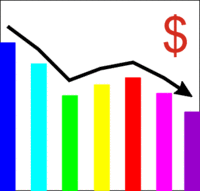U.S. March 2008 Auto Sales-Imported Marques
Washngton DC April 4, 2008; The AIADA reported that auto sales in March were record setting, but not the sort of record that dealers and carmakers were hoping to see. Sales were down to 1,356,868, 12 percent below March 2007. First-quarter sales fell by eight percent, to 3,577,293. And it’s not just domestic brands feeling the pinch of what the media has labeled an “economic slowdown.”
Toyota Takes a Blow
The once unstoppable Toyota
juggernaut has slowed production and appears to revaluating sales goals in
light of the dismal first-quarter numbers. Sales were down 10.3 percent
from last March, and industry insiders expect to soon see a reduction in
its original 16 million sales goal in the near future. In the meantime,
Toyota has responded by trimming its production of Tundra pickup trucks and
Sequoia SUVs. March marked Toyota’s fourth straight month of
year-to-year lower sales, not as bad as what GM and Ford are facing, but
surely an indication of tough economic times.
Small Cars = Big Profits
It doesn’t look like
consumers are going to rekindle their love of the gas-guzzling SUV anytime
soon. Like grunge rock and plaid, big vehicles enjoyed their zenith in the
‘90s. March saw a continuation of the trend toward small, fuel
efficient vehicles.
Honda, for example, has seen a sales drop of only 0.4 percent for the quarter, thanks in large part to the Accord, Civic, and Fit. "The Honda product portfolio is adapting well to the current direction of the marketplace," Dick Colliver, executive vice president of American Honda, said in a statement. "People are clearly being more strategic with their money as parts of the economy seek balance and other parts adjust to record-high gasoline prices." Hyundai’s lineup of fuel efficient cars also sold well – up two percent from last year – and it’s worth noting that Toyota’s Camry sedan and Prius hybrid both boasted their best March on record.
VW’s Bright Spot
While most car makers are
scrambling to ride out 2008, Volkswagen appears to be enjoying a resurgence
in the United States. The German company posted a 7.8 percent sales gain
over March 2007. And quarterly sales are down just slightly by 0.7 percent.
The Jetta sedan led the way with sales of 8,630 units, a 19 percent surge
over last year, the company said. In all, VW sold 19,587 units in
March.
Stefan Jacoby, chief executive of Volkswagen Group of America, said early in March that his goal is to sell 1 million vehicles annually by 2018 — 800,000 from the Volkswagen brand and 200,000 from the Audi brand. That would be a sharp increase from 2007, when the company sold 235,000 Volkswagens and 94,000 Audis. It also would reverse a downward trend. In 2002, the company sold 338,000 Volkswagen brand cars in the U.S.
"Diesel is back," Jacoby said during a speech at the National Press Club. "We see clean diesel at a tipping point." That’s good news for VW, which features diesel prominently in its European-influenced lineup.
What are Consumers Waiting For?
According to auto
consultant John Casesa, consumers might not be buying because they are
waiting for even more attractive incentive deals than those already
available. "I think this reflects concern about jobs, incomes and outlook
for household financial stability," said Casesa. "Americans are not
confident about their economic future, and so they’re reluctant to
make big-ticket purchases."
Fortunately, there may be light at the end of this tunnel. The much-anticipated $600 stimulus checks will be hitting mail boxes in May. When combined with the current low interest rates, the checks could very well spark spending in May, and give auto sales the push they need to get back in the black.
See below for a complete breakdown of February 2008 monthly and calendar-year-to-date sales by international nameplate.




